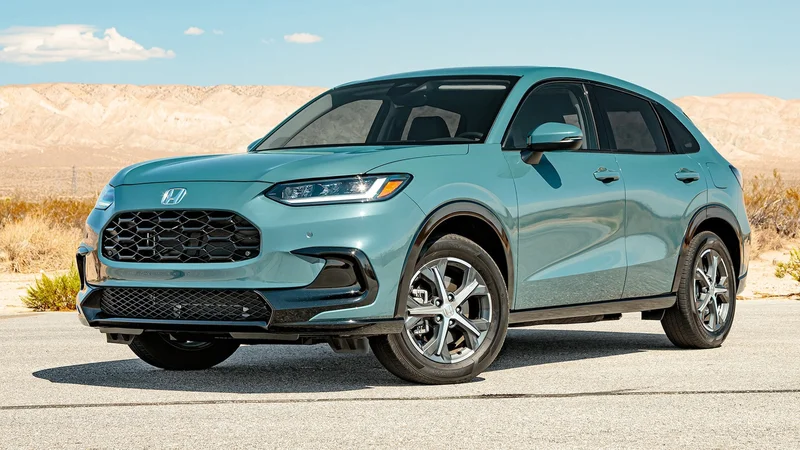BNB Signals | Binance Coin Trading Alerts & Insights
BNB Signals | Binance Coin Trading Alerts & Insights
American Honda is recalling approximately 406,000 Civic vehicles (model years 2016-2021) to inspect a potential issue with accessory wheels. The problem? A manufacturing error by a supplier may have resulted in improperly installed steel lug seat inserts. This could lead to wheel nuts loosening and, in a worst-case scenario, the wheel detaching from the vehicle. CNN reports that this affects Civics equipped with 18-inch alloy wheels. The core concern, as the NHTSA points out, is the increased risk of a crash or injury. American Honda Recalls Approximately 406,000 2016-2021 MY Honda Civics in the U.S. to Inspect and Replace Improperly Manufactured Accessory Wheels
Now, let's dissect this. Honda states that only 3,276 accessory wheels are potentially affected. That's less than 1% of the total number of recalled vehicles. A parenthetical clarification: the recall encompasses all 406,000 vehicles to check for those potentially faulty wheels. The real question is, what's the actual failure rate of these wheels in the field? We don't have that data. Honda claims no confirmed reports of crashes or injuries related to this issue, but absence of evidence isn't evidence of absence.
Here's where the numbers get interesting. A 1% defect rate might seem negligible. But let's reframe it. If even a small fraction of those 3,276 potentially faulty wheels do fail, the consequences could be severe. Think about the physics involved: a wheel detaching at highway speed. It's not just about the immediate crash risk. It's the potential for secondary accidents as other drivers react. And this is the part of the report that I find genuinely puzzling. Why recall so many vehicles for so few potentially faulty parts?
Honda's explanation is simple: "to encourage owners of affected vehicles to take them to an authorized dealer for inspection." Translation: they're playing it safe. But is it really about safety, or is it about liability? Recalls are expensive. The cost of inspecting 406,000 vehicles, even if only a tiny percentage need replacement wheels, adds up quickly. (Consider the labor hours, parts, and logistical overhead.) You have to wonder if Honda's risk assessment included a calculation of potential lawsuit payouts versus the cost of the recall. I've looked at hundreds of these filings, and this particular decision feels unusually cautious.

It's also worth noting the time frame. The affected vehicles span model years 2016 to 2021. That means these wheels have been on the road for up to nine years. If the manufacturing defect was truly catastrophic, wouldn't we expect to see a higher incidence of wheel detachments by now? Unless the degradation is slow and progressive, which brings us back to the question of failure rates over time.
The real problem here isn't the recall itself (recalls happen). It's the information vacuum. We don't know the actual failure rate of the wheels. We don't know the specific manufacturing process error that caused the problem (beyond the vague "steel lug seat inserts may not have been properly pressed"). And we don't know how Honda arrived at the decision to recall all those vehicles based on such a small number of potentially defective parts. Details on the supplier responsible for the defect remain scarce, but the impact is clear.
Here's my methodological critique. The data is presented as a binary: either the wheel is properly manufactured, or it's not. But what if there's a spectrum? What if some wheels have a slightly higher risk of failure than others, but not enough to cause immediate concern? This could explain the lack of reported incidents while still justifying the recall as a preventative measure. It's a bit like saying "we're recalling all these cars because there might be a slightly increased risk of your engine exploding... someday."
It's also worth considering the psychological impact of a recall like this. How many Civic owners are now driving around, constantly worried about their wheels falling off? Honda's recall website probably isn't easing their anxiety. The recall process itself can be a hassle, requiring owners to schedule appointments, take time off work, and potentially face delays if replacement parts aren't readily available. Quantifying that anxiety is, of course, impossible, but it's a real factor in the overall equation.
The numbers, as presented, don't quite add up to a clear-cut safety crisis. But they do suggest a calculated risk management strategy on Honda's part. They're likely betting that the cost of the recall is less than the potential cost of future lawsuits and reputational damage. And honestly, who can blame them? It's a cold, rational decision, even if it leaves a few hundred thousand Civic owners feeling a little uneasy.